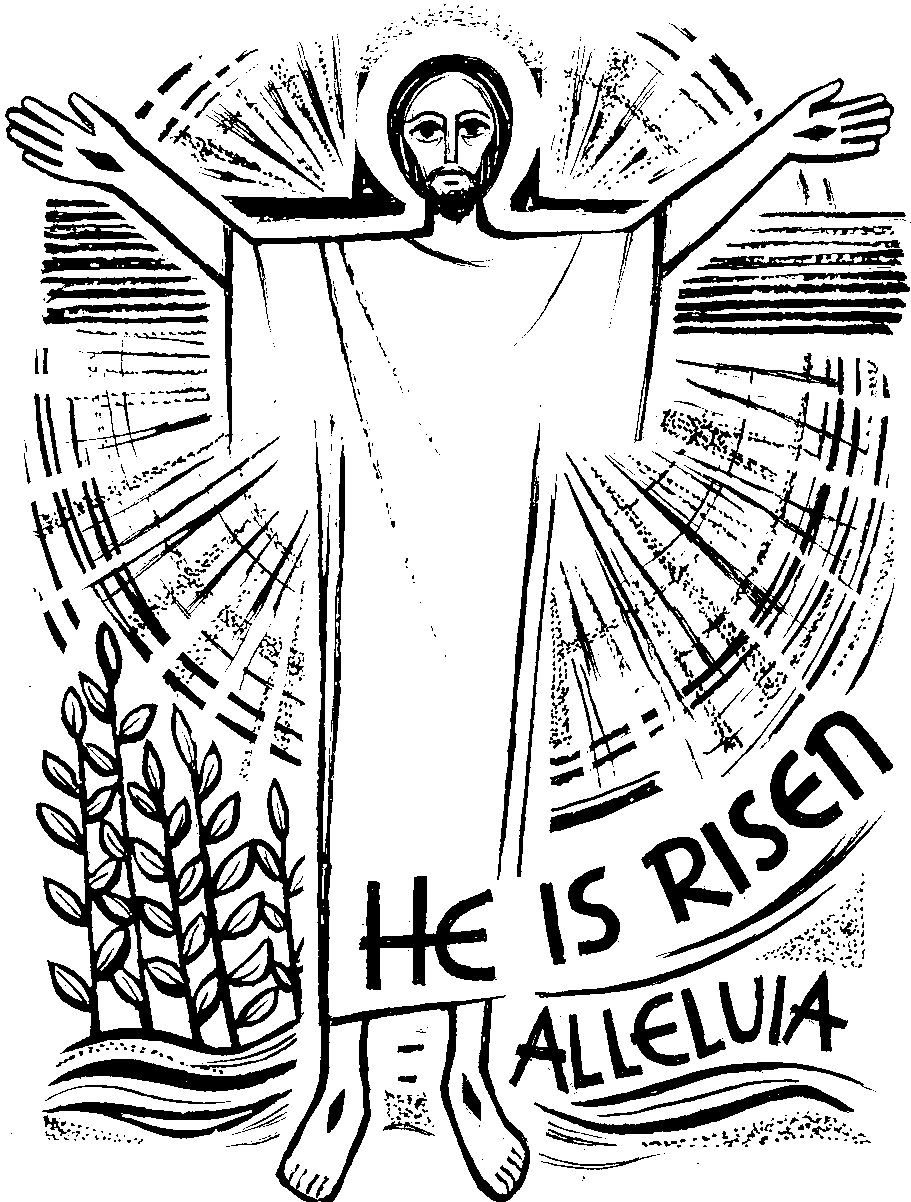Easter that spring festival of Christians. We nicked the name from a pagan spring festival (eostre) that was annoyingly popular, they have common themes of new life, hope and eggs (chocolate hadn’t been invented). Today it’s about family and chocolate, but it’s still about spring and hope and new life, even for us modern day sceptics.
So, around about now, you’re probably wondering or worried: has the vicar lost his faith, lost direction or just lost the plot? Everybody knows that the parish priest should be talking about resurrection - being alive again with the everlasting life of heaven—we are all familiar
with the idea, and what vicars believe, even if we are not sure about it ourselves.

The thing is, nobody believed in it in Jesus’ time either. We tend to think of ourselves as the only sceptics, that the ages before us weren’t as clever as we are, didn’t know what we know (poor things didn’t even have chocolate!) so would believe any kind of superstitious and religious nonsense. But we should blush at our arrogance. They didn’t have our technology but they could still think! Most of our thinking is rooted in the ancient world—if not, in being human.
The thing about the stories of Resurrection is that they are so strange, so utterly strange, that we have to be proper sceptics, challenge the thinking of our day. The ‘go to’ explanation that the Jesus followers couldn’t cope with his death, so made up the story of his resurrection so they could carry on his work and keep his movement going, or that they were gullible or confused may actually make less sense than the Resurrection story itself!
Reach your own conclusions...
Problem 1: Nobody believed in the resurrection—nobody in the ancient world. A large part of the Jewish people believed in a general resurrection from the dead at the end of time, nobody suggested it about somebody separate from everyone else.
Problem 2: Death on the cross was proof positive that you were not a messiah, not a hero, not a martyr; (only that you had indeed been “a very naughty boy” thanks to Monty Python for that line) Seriously, it was a hideous form of execution designed to prove that you were an utter failure—the Jewish people understood that you had been cursed by God. The universal conclusion was that they had not been the messiah, their movements collapsed and the disappointed followers gave up or looked for some else. No Romans, Jews or Greeks, no one ever suggested someone who died on the cross was a hero or a martyr, let alone the messiah or son of God. The very thought was somewhere between laughable and obscene.
The Utter Strangeness of the Resurrection
Problem 3: Choose your witnesses carefully if you are going to lie. In an era when the witness statement of women was rejected out of hand as unreliable, why tell a story where the first witnesses are women? We wouldn’t agree with many of the values of those societies today, but those were the largely unquestioned beliefs of the time.
Problem 4: Make sure you’ve sorted your background evidence. The gospels are full of links to other stories in the bible – direct quotes, the way things are written, the pictures used; so that people can see what is happening as part of the whole story of God’s people. As they move toward the crucifixion the number of links to the Old Testament pile up, tumbling over one another; but then, suddenly, in these first stories of Easter, all the Gospel writers leave a sudden and deafening silence from scripture—no quotes, references, just the bald events as they tell them.
There is much more, but that’s more than enough to ponder over our Easter chocolate. If you were going to convince people of the resurrection of Jesus, in order to keep Jesus’ work alive; why on earth would you tell stories that nobody would believe? Unless, the experience was so breath-taking, so shocking, that you could not do anything but tell others what you had seen and experienced.
That is why, Christians make time to walk with Jesus through Holy Week, to understand the depth of God’s love for us in Jesus Christ and to relive the joy of his resurrection.
Chris



コメント